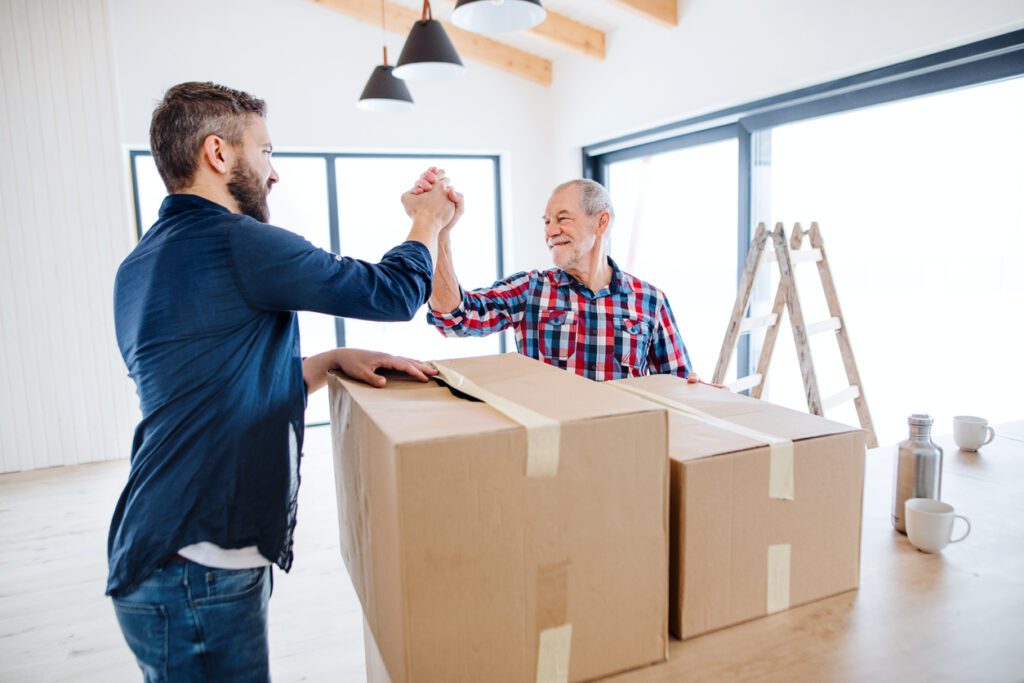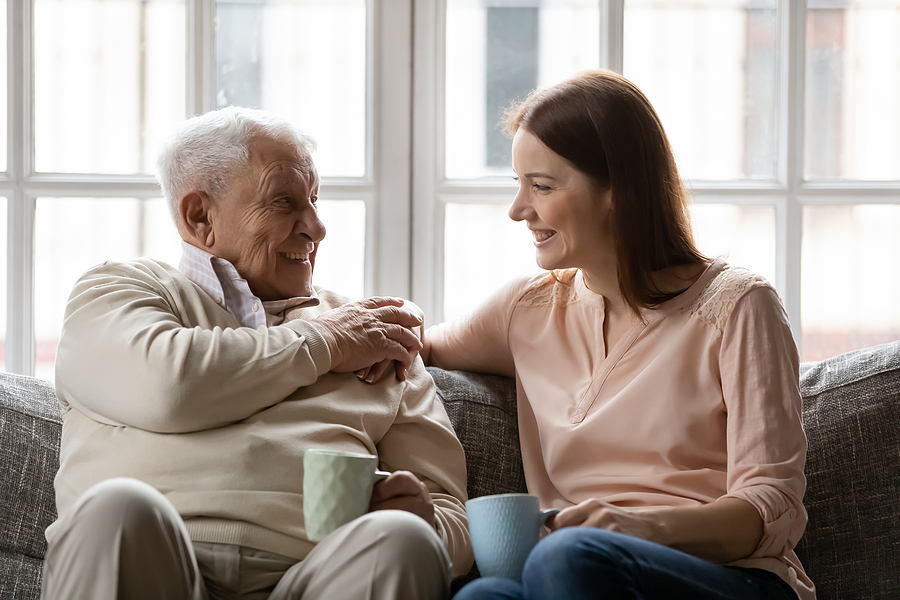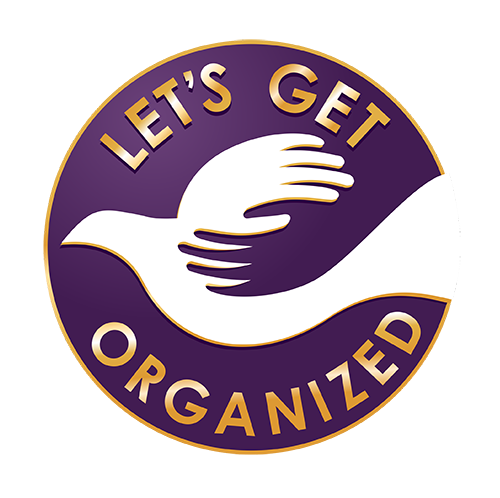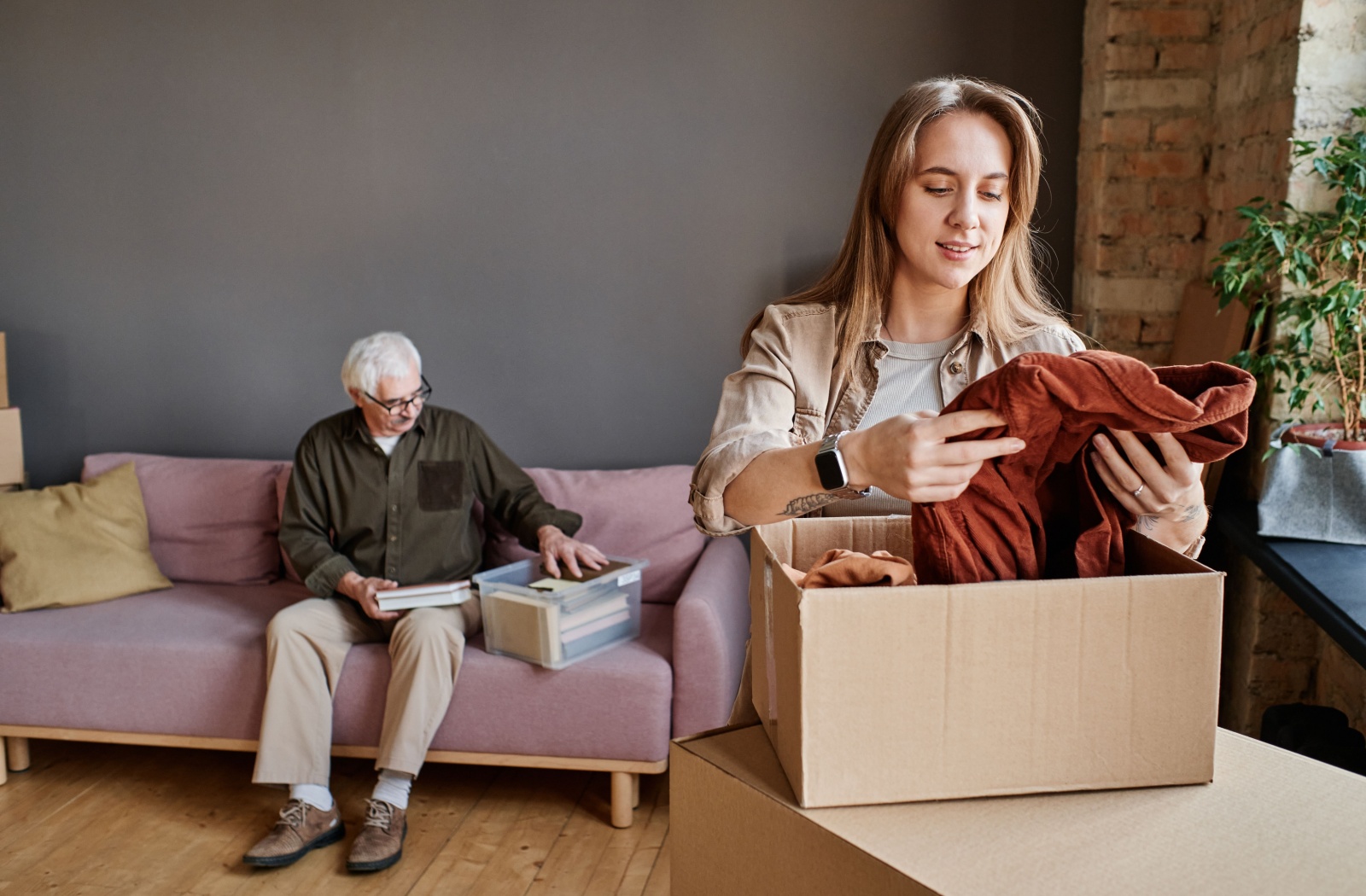Organizing for Aging Parents: How to Make Life Easier, Safer, and More Comfortable
Organizing for Aging Parents
How to Make Life Easier, Safer, and More Comfortable
Introduction
Organizing for aging parents can feel overwhelming, but organizing their home and life with intention can help them feel safer, more independent, and deeply cared for.
Whether your loved ones are downsizing, dealing with mobility issues, or moving in with you, organizing for aging parents is one of the most supportive things you can do. It’s not just about neat shelves and clear countertops, it’s about creating an environment that reflects their needs, honors their past, and helps them feel in control.
At Let’s Get Organized, we work closely with families facing these transitions. We understand the emotions, the logistics, and the delicate balance of offering help without taking over. Here’s how to approach organizing for your elderly parents – with love, patience, and practical strategies that truly make a difference.
table of content
- Prioritize Safety and Accessibility at Home
- Create a Smooth and Respectful Downsizing Experience
- Make Their Move Into Your Home Feel Welcoming
- Organize Important Documents Before You Need Them
- Ask for Help – You Don’t Have to Do This Alone
- You’re Not Just Organizing Stuff, You’re Creating Peace and Connection
Prioritize Safety
and Accessibility at Home
As we age, our bodies change. Tasks that were once second nature – like reaching for a dish in a high cabinet or bending to tie a shoe – can become difficult, even dangerous. That’s why safety and accessibility should be the foundation of any organizing effort.
Start by walking through your parents’ home with fresh eyes. Look for anything that could cause a fall or create frustration. Are there rugs that slip? Furniture that blocks movement? Items they use every day stored in hard-to-reach places?
The goal is to bring the essentials within easy reach, between hip and shoulder height is ideal. For example, everyday dishes should live on lower shelves, and bathroom items should be kept in drawers or bins they can open with one hand. Avoid overstuffed cabinets or storage that requires stretching, squatting, or using a step stool.
Make sure walking paths are wide enough for any mobility aids, such as walkers, canes, or wheelchairs. Removing unnecessary furniture can open up the space and allow them to move more freely. If they’re using mobility devices now, or might be in the near future, it’s wise to plan ahead.
Simple upgrades can make a huge difference. Think grab bars in the bathroom, touch lamps, motion-sensor lights in hallways, non-slip mats, and even a comfortable chair with arms for easier standing. These thoughtful details go a long way toward preserving independence and dignity.

Create a Smooth and Respectful Downsizing Experience
Downsizing is never just about space – it’s about memory, identity, and letting go. When your parents are moving into assisted living or a smaller home, they’re not just leaving behind square footage. They’re leaving a chapter of life.
And that can be really hard.
The key is to treat the process with patience and compassion. Instead of deciding what to get rid of, help them focus on what they truly want to keep. What items do they use every day? What pieces hold special meaning? What would bring comfort in a new environment?
Set aside plenty of time. Go room by room. Share stories as you sort. Some items may have more sentimental value than you realize, others may be easier to let go than expected. If parting with something is difficult, offer alternatives: could you take a photo of it? Pass it to a family member? Repurpose it into something useful?
Create a system for sorting; what stays, what goes to donation, what might be passed down. Label boxes clearly. Don’t forget to involve your parent in the decision-making, even when it’s tempting to speed things up.
Remember, this isn’t about creating a minimalist show home. It’s about curating a space that feels familiar, comforting, and personal. A new place filled with the right things, chosen with love and intention, can still feel like home.
Make Their Move Into Your Home Feel
Welcoming

Sometimes, the best plan is for your parents to move in with you. It can be a beautiful arrangement, but it also requires thoughtful organization to make the transition smooth for everyone involved.
Begin by creating a designated space just for them. It doesn’t have to be large or fancy. What matters is that it feels like theirs. Add personal touches: framed photos, a cozy throw, their favorite reading lamp. These details help foster a sense of comfort and ownership, especially in unfamiliar surroundings.
Think through their daily routine. Where will they keep their medications? Is the bathroom equipped with everything they need? Are there clear places for keys, glasses, hearing aids, or important papers?
You may also need to adapt common areas to accommodate mobility aids or cognitive changes. That could mean installing extra lighting, simplifying storage, or creating visual cues to help with memory.
Above all, aim to balance support with autonomy. Let them do what they can on their own, while making sure everything they need is accessible and easy to find. It shows you respect their independence, which is vital for emotional wellbeing.
And don’t forget to carve out boundaries for your own household too. Clear communication, mutual respect, and good systems go a long way toward keeping the peace.
Organize Important Documents Before You Need Them
One of the most loving things you can do for your parents, and yourself, is to help get their essential paperwork in order.
Medical records. Insurance documents. Legal paperwork. Medication lists. Emergency contacts. Power of attorney forms.
These are the documents that matter most in a crisis – and yet, they’re often scattered, outdated, or hard to find when you need them. By organizing them now, you can avoid future stress and ensure your parents get the support they need quickly.
Set up a central location for these items. You can use a binder with labeled tabs, a secure digital folder, or a combination of both. Make sure at least one trusted family member knows where everything is and how to access it.
This kind of preparation doesn’t just help in emergencies, it also gives your parents peace of mind. They’ll know that their wishes will be honored and their affairs are in good hands.
It’s not always an easy conversation to have, but it’s an important one. And once it’s done, everyone can breathe a little easier.
Ask for Help
You Don’t Have to Do This Alone
If this all feels like a lot… you’re not wrong. Being the adult child of aging parents means juggling your own life while also managing theirs. It’s emotional. It’s exhausting. And it can feel incredibly lonely at times.
But here’s the good news: You don’t have to do it all by yourself.
At Let’s Get Organized, we specialize in helping families just like yours. Our compassionate team of professional organizers understands the emotional weight of this journey, and we’re here to lighten the load.
We help with everything from decluttering and packing to setting up safer spaces and supporting you through transitions. We honor your parents’ story while helping you create a path forward with calm, clarity, and care.
Whether you need help with one room or the whole house, we’re here to walk beside you every step of the way.
You’re Not Just Organizing Stuff
You’re Creating Peace and Connection
Organizing for aging parents is deeply personal. It’s about showing love through action. It’s about creating spaces that are safe and nurturing. It’s about honoring who your parents are, and who they’ve been.
There’s no perfect way to do it. But with thoughtful planning and a compassionate approach, you can help your loved ones feel respected, supported, and more at home – wherever they are.
When you’re ready, we’re here to help.

author
Gayle M. Gruenberg
Gayle M. Gruenberg, CPO-CD®, CVOP, is the Chief Executive Organizer of Let’s Get Organized, LLC, an award-winning professional organizing firm based in Bergen County, New Jersey. Gayle is the creator of the Make Space for Blessings™ system. LGO works with busy families to help them find more time, space, money, and energy and connect their lives to their core values through being organized.
Note: A version of this article was originally published in the November 2020 edition of 24/Seven, the magazine of the lifestyle brand Change Your Attitude, Change Your Life.

